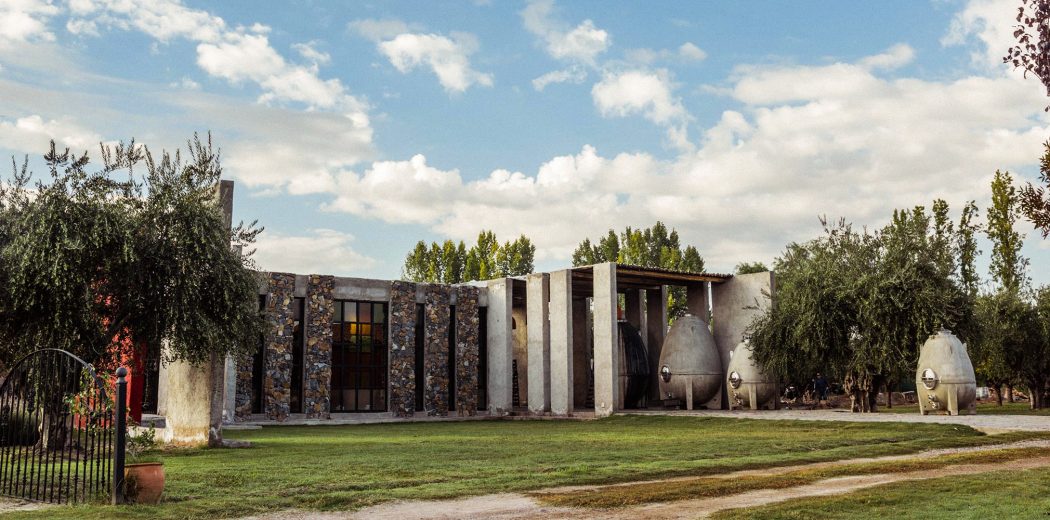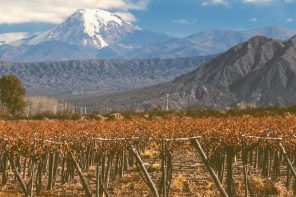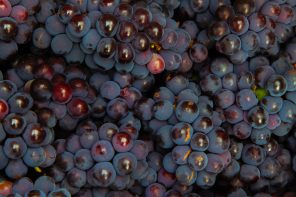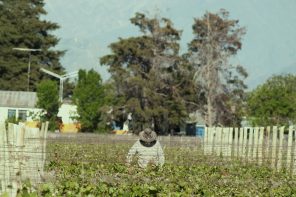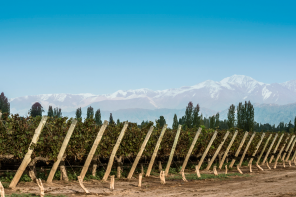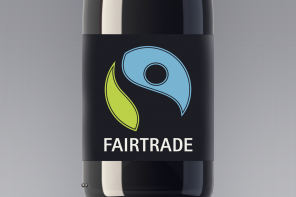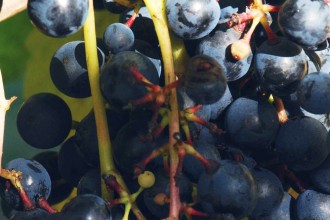For most, visiting a winery sounds like the ultimate paradise; guided tours through cellars, tasting through a lineup of delicious wines, all whilst surrounded by a slew of vineyards. However, there’s a winery on Argentina that’s a literal hell on earth — and we can’t get enough.
El Enemigo is located in the heart of Mendoza, Argentina’s prime viticultural region. The winery is headed and owned by winemaker Alejandro Vigil, also the chief winemaker of Mendoza’s famed Catena Zapata winery. Growing up, Vigil was interested in math and sports, specifically rugby, where he was even recruited to play professionally.
However, Vigil took a job at the local wine cooperative at age 14, igniting a passion for the grape within him. He continued on to study agricultural engineering, eventually becoming the head of the soils division at Argentina’s National Research Institute at the young age of 27. In 2002, his expertise caught the eye of renowned winemaker Nicolas Catena, who eventually recruited him to lead the estate’s research team, as well as produce Catena Zapata’s wines.
Passionate winemaking ultimately led Vigil and his wife, Maria, to the decision to open a restaurant and winery; though Vigil couldn’t entirely shake his passion for art and literature, which were instilled in him by his grandfather and mother at a young age. Vigil was first introduced, by his grandfather, to Dante Alighieri’s Divine Comedy when he was just a child, fascinated by the journey that the author took to reach Paradise. In conceiving the idea for the basis of the restaurant, Vigil deemed the narrative poem a perfect starting point.
Just like Dante had to first trek through hell and purgatory to reach paradise, so must a visitor at El Enemigo. Upon arriving at El Enemigo, visitors are greeted at the grounds of Casa Vigil, where Alejandro and Maria actually live. Here, one is able to see the fresh vegetables grown throughout the organic gardens, boasting over 50 types of tomatoes, corn, and zucchini, as well as an array of herbs, all used in originally created recipes at the restaurant. From Casa Vigil, the visitor then descends downstairs into the winery and cellar, viewed as the ‘hell’ of the estate. Here, work and labor are executed, surrounded by an array of paintings and books. Continuing through the cellar, one enters Purgatory, a middle-space between the winery and ground-level, where a small gallery is set up, depicting an array of rotating art. One rests and views the paintings on display, pondering the meal they are about to enjoy upon resurfacing.
And then, paradise, otherwise known as Casa El Enemigo. Here, guests have completed their journey through the makeshift Divine Comedy, now receiving the possibility to immerse themselves in the pure pleasure of locally grown food and hand-crafted wine. The restaurant boasts a three-course menu that changes four times per year, highlighting freshness and seasonal ingredients. Courses are served with six different wines, without any specific food and wine pairing instructions; unlike conventional tasting menus, here, guest interaction and experimentation is encouraged, allowing the consumer to curate their preferred food and wine pairings, seeking the gastronomical marriage that brings them the most pleasure. Live music also frequently accompanies the meal, creating a multi-sensory, ‘heavenly’ experience.
In addition, art is curated (and switched up) throughout the estate every three months, highlighting local artists and their creativity. Aside from Vigil’s love for art, the concept stems from offering visitors to Mendoza a broader vision of the region, outside from just food and wine. The art on display is available for purchase directly at the estate; through June 21st, the paintings of Osvlado Chiavazza and sculptures of Fernando Rosas are currently being shown.
The name and concept of El Enemigo (the enemy), comes from the idea that everyone has fought battles that now define them, and in some way, have caused a simultaneous pursuit of happiness amongst mankind, just as experienced by Dante in The Divine Comedy; to wine, art, and the pursuit of happiness — we’ll drink to that!

